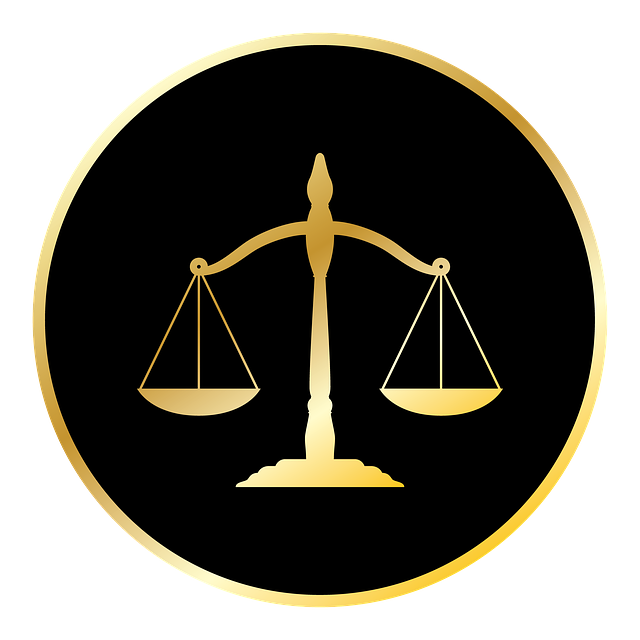In the UK, accurate and specialized translations of court documents are essential for fairness and transparency in legal proceedings. Professional translation services are crucial due to the complex nature of UK law and the need for precise communication. Strict adherence to legal standards, confidentiality, and expertise in both language and UK legal terminology ensure reliable translations. Advanced technologies enhance efficiency but require skilled human translators to maintain accuracy. Choosing a reputable provider with a proven track record is vital for maintaining integrity and accessibility in the justice system through accurate Court Documents UK translation services.
In the intricate landscape of UK legal proceedings, precise communication is paramount. Official court translations play a vital role in ensuring accessibility and fairness for all parties involved. This comprehensive guide delves into the critical aspects of UK court document translation services. From understanding the importance of accuracy to navigating the qualifications of legal translators, we explore the entire process. Discover how technology enhances precision and what challenges lie ahead, ultimately guiding you in choosing the right provider for seamless legal translation in the UK.
- Understanding the Importance of Accurate Translations in UK Courts
- Legal Requirements for Court Document Translation in the UK
- The Process of Official Court Translation Services
- Qualifications and Expertise Needed for Legal Translators
- Technology's Role in Enhancing Court Translation Accuracy
- Common Challenges in Translating Legal Documents
- Ensuring Quality Control in Court Translation Services
- Choosing the Right UK Legal Translation Provider
Understanding the Importance of Accurate Translations in UK Courts

In the UK legal system, where court proceedings are based on precise language and documentation, accurate translations play a pivotal role. Court documents, including warrants, judgments, and witness statements, must be translated with utmost care to ensure fairness and transparency in trials. Professional UK translation services are indispensable for navigating this complex landscape, ensuring that every word is conveyed correctly, and legal nuances are preserved across languages.
The consequences of inaccurate translations can be severe. Misinterpretations may lead to misunderstandings, potential miscarriages of justice, and even challenges to the validity of court decisions. Therefore, it’s crucial to engage reliable and experienced translators who understand not just the language but also the legal terminology specific to UK courts. This ensures that court documents are translated with precision, allowing for seamless communication and a fair process for all parties involved.
Legal Requirements for Court Document Translation in the UK

In the United Kingdom, the translation of court documents is governed by strict legal requirements to ensure accuracy and integrity. When dealing with court documents, whether for a civil or criminal case, it’s imperative to engage professional UK translation services that possess a deep understanding of both the language and legal terminology. The primary focus is on precision and fluency in translating written material, as any errors can have significant consequences.
Legal professionals must ensure that translations are certified and meet the standards set by the court system. This often involves using licensed translators who are specialized in legal documentation and familiar with UK legal processes. Court document translation services must adhere to guidelines for confidentiality, privacy, and data protection, given the sensitive nature of legal cases.
The Process of Official Court Translation Services

Official court translations for UK legal use are a meticulous process, ensuring accuracy and compliance with stringent legal standards. The journey begins when a court or legal entity requires translation services for court documents. This could involve contracts, warrants, witness statements, or any other legal paperwork that must be accessible to all parties involved, regardless of language barriers.
Professional translators, often with legal expertise, are engaged to handle these sensitive tasks. They meticulously review the source document, understanding its nuances and legal terminology. Using advanced translation software and industry-specific glossaries, they render the content into the target language while preserving the original intent and meaning. Quality assurance checks are then conducted to ensure accuracy, consistency, and adherence to legal terminology standards specific to the UK.
Qualifications and Expertise Needed for Legal Translators

Legal translators working on court documents in the UK require a unique blend of skills and expertise to ensure precision and accuracy. Not only must they possess fluency in both English and the target language, but also a deep understanding of legal terminology and concepts specific to each jurisdiction. This often involves extensive training and specialized qualifications in legal translation.
Many professional legal translators hold advanced degrees in languages or law, or both. They stay up-to-date with changes in legislation and court practices through continuous professional development. Their expertise extends beyond language proficiency; they must be adept at navigating complex legal texts, understanding subtle nuances, and accurately conveying the intended meaning from one legal system to another. This ensures that court documents are translated not just word-for-word but contextually appropriately for UK legal use.
Technology's Role in Enhancing Court Translation Accuracy

Technology has significantly enhanced court translation accuracy, particularly for court documents UK translation services. Advanced tools like machine translation (MT) platforms and artificial intelligence (AI) are revolutionizing the process. These technologies can quickly analyze vast amounts of data, improving the speed and consistency of translations.
For instance, MT systems can provide initial translations that human translators can then refine, ensuring accuracy and cultural appropriateness. AI algorithms also enable post-translation editing by identifying common errors, enhancing overall quality. This integration of technology not only streamlines translation processes but also reduces costs and turnaround times for court documents UK translation services, making legal procedures more efficient and accessible.
Common Challenges in Translating Legal Documents

Translating legal documents for UK courts presents unique challenges due to the intricate nature of legal terminology and the requirement for precise, term-for-term accuracy. One of the primary hurdles is navigating the vast array of legal jargon and specialized terms within the document, ensuring their equivalent translations are both accurate and culturally appropriate for the target audience. For instance, terms like “libel” or “precedent” may have nuances that don’t translate directly, necessitating skilled translators who understand not just the language but also the underlying legal concepts.
Furthermore, court documents often contain complex narratives, procedural details, and case law references, requiring a deep understanding of British legal procedures and terminology. Inaccurate translations could lead to misunderstandings, misrepresentations, or even legal consequences, making it crucial to engage professional UK translation services specializing in court documents. These services employ translators with legal expertise who can handle the specific requirements of such sensitive materials.
Ensuring Quality Control in Court Translation Services

Ensuring quality control in court translation services is paramount for accuracy and fairness in UK legal proceedings. These translations play a critical role in ensuring that court documents, evidence, and testimonies are accurately conveyed to all parties involved, regardless of their language proficiency. Reputable translation services employ rigorous quality assurance measures, including thorough reviewing and editing processes by experienced professionals. This not only catches linguistic errors but also ensures cultural nuances and legal terminology are handled appropriately.
Additionally, many top-tier UK translation services utilise advanced technology like machine translation platforms and memory databases to streamline the translation process while maintaining precision. Regular training and updates on legal terminology further enhance the accuracy of these translations. Ultimately, adhering to strict quality control standards guarantees that court documents, in any language, retain their integrity and authenticity, fostering a fair and accessible justice system for all.
Choosing the Right UK Legal Translation Provider

Choosing the right UK legal translation provider is crucial for ensuring accuracy and compliance in court documents. When dealing with legal matters, precision is paramount. You want a service that understands the nuances of British law and can accurately translate complex terminology. Reputable providers will employ translators who are not only fluent but also have expertise in legal fields, guaranteeing a deep understanding of the context.
Reputation and experience matter. Opt for companies with a proven track record in court document translation, preferably ones that have worked with UK courts and legal professionals. Look for client testimonials and case studies to gauge their reliability and quality of work. Additionally, ensure they keep up with legal terminology updates and changes in legislation to provide the most current translations.
Accurate and official court translations are indispensable for ensuring justice and fairness within the UK legal system. As we’ve explored, meeting the stringent requirements of legal translation demands a deep understanding of both language and law. By leveraging advanced technology and adhering to strict quality control measures, reputable translation services can provide essential support to courts, lawyers, and clients alike. When selecting a provider for court documents UK translation services, it’s crucial to consider their expertise, qualifications, and commitment to accuracy – factors that ultimately shape the integrity of legal proceedings.
